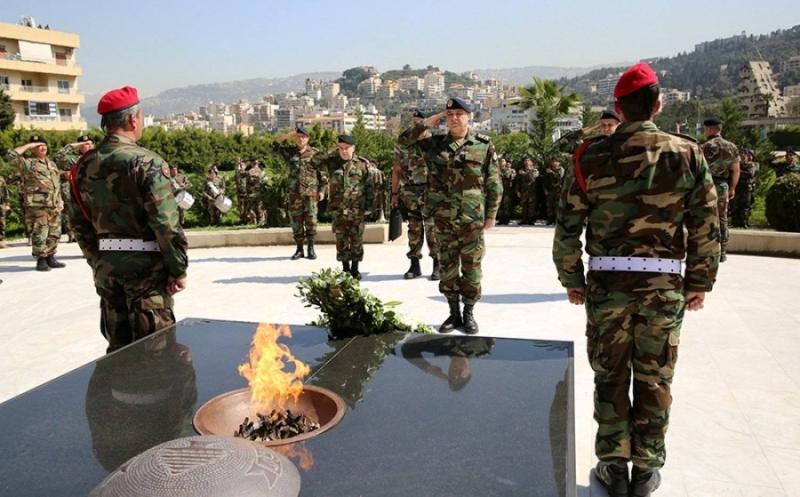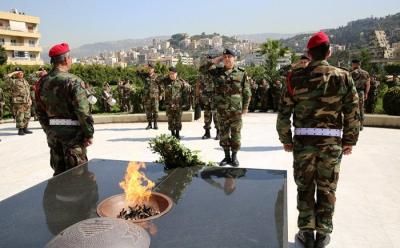Iranian Foreign Minister Hossein Amir-Abdollahian departed Beirut, but the echoes of his statements, considered a "check" on the French role in the Lebanese presidential crisis, remain strongly present on the local-regional chessboard. Parliament Speaker Nabih Berri noted, "He spoke and left" regarding the proposal for a two-phase presidential election, which aims to filter the names of candidates based on specifications, with discussions lasting seven days in September to prepare for consecutive electoral sessions. However, the hidden details of this proposal, which faced resistance from significant opposition forces, have become a topic of inquiry behind the political scenes, away from the superficialities of internal games and maneuvers.
In Beirut, well-informed circles wondered: Is there a link between Abdullahian's positions and Berri's initiative? This came amidst the declared intention behind the Iranian Foreign Minister's direct criticism of French President Emmanuel Macron, who had implicitly criticized Tehran's negative role in the Lebanese file days earlier. Abdullahian advised Macron, instead of focusing on meddling in other countries' affairs, to devote his attention to his own internal matters.
The interpretations of the Iranian "admonishing" message to Paris suggest that it signals the death of Louis’ mission and announces the retirement of the French role—more aligned within the framework of the Group of Five around Lebanon—after Tehran allowed this role to swell since it backed Suleiman Frangieh for the presidency in the first phase of the initiative. In light of the evolving realities in the region, Tehran, which is pulling Washington's string on multiple fronts, chose to engage the U.S. in back-and-forth discussions about the Lebanese situation.
Berri's proposal carried implications beyond merely obstructing the French envoy's mediation, who was tallying responses from Lebanese MPs about the specifications and priorities for the future president ahead of a comprehensive meeting leading to consecutive electoral sessions. Berri appeared to adopt Louis' proposal and localize it, rendering the latter seemingly disarmed as an envoy.
Some circles believe that Berri's implications reflect an implicit announcement of the expiration of the original timeline for Hezbollah’s dialogue with the Free Patriotic Movement (FPM) leader, MP Gebran Bassil, regarding the presidential file, which Hezbollah viewed as a way to draw Bassil into supporting Frangieh, while Bassil sought to establish a deal superficially aiming for expanded administrative and financial decentralization and a dedicated fund in exchange for agreeing to the leader of the Marada Movement. Ultimately, this arrangement fundamentally rejects the ascension of Army Commander General Joseph Aoun to the presidency.
Behind the scenes, political whispers suggest that the arduous dialogue between Hezbollah and Bassil is likely approaching a dead end, though this does not indicate a return to a complete rupture following their heated disagreements over the presidential election and the prospective president's identity. Despite initially understanding that it could not convince others of any agreement with Bassil regarding his conditions for dialogue over the presidential choice, Hezbollah appears weary of what its allies consider blackmail from Bassil, who wants everything or nothing.
Sources informed (Al-Rai) that Hezbollah would not support Bassil's tilt toward financial decentralization, which could solidify a divisive step and undermine the status of the Finance Ministry—an issue that its Shiite ally, Berri, would not tolerate, given the duo having endowed the finance position with a constitutional significance concerning the balance of signatures in the executive authority.
In a highly significant gesture that reflects a new approach by the party regarding its presidential choice, insiders have expressed concerns about Bassil, who eliminates discussion of the army commander in any dialogue regarding a third candidate, apart from Frangieh backed by Hezbollah and Berri, and Jihad Azour, whom the FPM leader and the opposition have agreed to nominate.
Interested circles indicated to (Al-Rai) that Hezbollah, whose Secretary-General Hassan Nasrallah has recently commended the army and its leader, would not oppose electing Aoun as president if he received support from essential parliamentary forces, particularly if Frangieh's chances to lead diminished in favor of the army commander.
Hezbollah, which prefers to back a familiar candidate based on experience, has been raising a narrative indicating confidence in the army commander, who is keen on maintaining civil peace. Berri's dialogue initiative, which opens channels with various decision-making capitals, appears exploratory in the same direction for both internal considerations and external factors that cannot be overlooked regarding the presidential file, which has become internationalized.
Some view the growing presidential chances for the army commander as indicative of deeper implications for the dialogue between Hezbollah and Bassil and its pitfalls, amid concerns that the party’s presidential strategy may have shifted due to fears still concealed within narrow circles not far from it regarding the preparation for a political upheaval leading to a civil war, linked to what these circles perceive as an intricate trajectory beginning with adjustments to UNIFIL's mission, as expressed in the recent extension decision, and culminating in U.S. envoy Amos Hochstein's efforts to address the land dispute between Lebanon and Israel by diffusing tensions, potentially linking the Shebaa Farms issue to the dismantling of triggers for Hezbollah's weaponry.
In this context, regardless of doubts from some about the inclusion of Aoun’s name on the table being an attempt to lure the opposition into dialogue or to raise the stick against Bassil, it becomes legitimate to question whether the priority of protecting armaments and preventing the party from falling into a quagmire of internal conflict necessitates aligning the presidential choice with this priority, thus avoiding the presidential elections from becoming a tortuous division that could bring a president chosen by a slim majority, and consequently selecting a president who enjoys comprehensive internal acceptance while putting external opponents against a wall, ensuring no landmines hinder their tenure.




